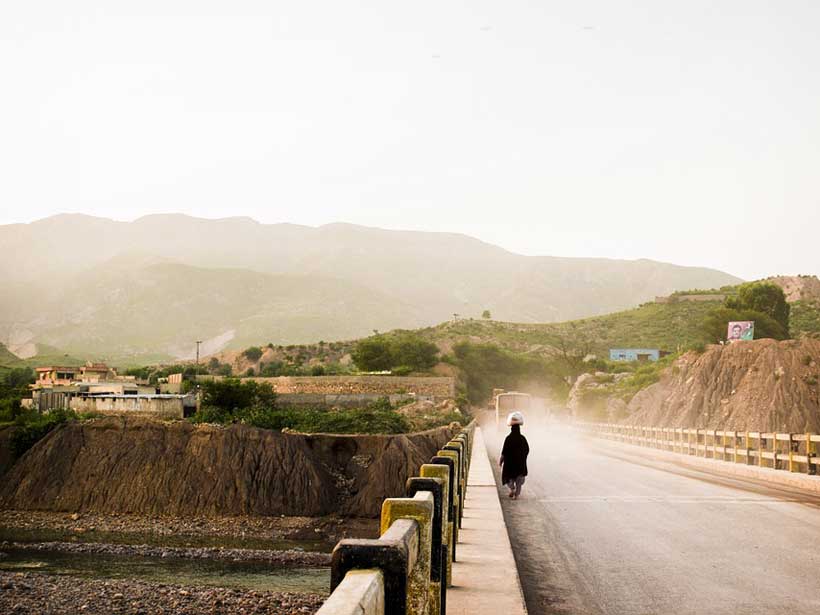However, Balochistan, a province in southwestern Pakistan, has been facing various human rights violations for decades. The region’s complex political and social dynamics, including historical grievances and demands for greater autonomy, have contributed to tensions between the citizens.
One of the key human rights issues in Balochistan is the targeted killings of minority groups, such as the Hazara community. According to the “National Commission for Human Rights Pakistan,” approximately 2000 Hazaras have been killed in the last fourteen years. These senseless acts of violence not only result in the loss of innocent lives but also create fear and instability within the region. Another grave violation of human rights in Balochistan is the killing of laborers. In April 2015, gunmen targeted a construction site, resulting in the brutal murder of at least 20 workers, 16 of whom were from Punjab and 4 from Sindh Province. These killings deprive families of their loved ones and perpetuate a sense of fear and instability in the region.
Arbitrary arrests are another issue, with 4000 people being arrested in Balochistan since 2005, their identities and whereabouts remaining unknown. Forced disappearances are also a grave concern, with nearly 10,000 cases reported between 2001 and 2020. These cases involve the unlawful detention and abduction of individuals, including political activists, students, journalists, and human rights defenders. The families of the victims are left devastated, with little information about the fate of their loved ones. To prevent the killings of minorities and forced disappearance the government needs to investigate the cases of missing persons and hold the perpetrators accountable for their actions. The government of Pakistan and the international community must come together to address these issues, protect the rights of the people of Balochistan, and bring the perpetrators to justice.
Press freedom is also restricted, with more than 40 journalists being killed and newspapers banned for running stories on human rights violations. The lack of development and basic services further contribute to the deteriorating human rights situation in Balochistan. To raise awareness about the importance of press freedom the government should ensure that media regulatory bodies, such as the Press Council of Pakistan, have sufficient independence and power to investigate complaints against the press and take appropriate action. This would help prevent unfair bans on newspapers and ensure that press freedom is respected.
Denial of the right to education is another violation, with limited access to quality education and gender inequality affecting the literacy rates, particularly for women. Only 27% of women in Balochistan are literate, contributing to the region’s overall literacy rate of 43.58% furthermore barriers to enrollment, inadequate infrastructure, and security issues further discourage education.
Socioeconomic status exacerbates the problem, as many people in Balochistan live in poverty and lack access to basic necessities such as food, shelter, education, and healthcare. Denial of access to adequate healthcare is also a violation of rights, with marginalized communities or individuals being denied essential services due to a lack of resources or intentional neglect. Financial barriers also contribute to this issue, as they leave individuals unable to afford necessary healthcare Although the government-initiated health card, meant to provide healthcare services to 1.8 million families, has not effectively served its purpose due to a lack of hospitals in Balochistan.
To address the socio-economic problems in Balochistan the government should invest in education, and establish more schools and vocational training centers, as well as provide scholarships and incentives to encourage female education. Additionally, enhancing the healthcare system by building hospitals and clinics in remote areas and increasing the number of healthcare professionals would help address the healthcare challenges in the region. These policies, along with effective implementation and monitoring systems, can contribute to alleviating the socio-economic problems in Balochistan.
Protecting and promoting human rights is essential for the well-being and development of a society. They ensure that individuals are treated with dignity and respect, and have access to their basic needs, such as food, shelter, and healthcare. The absence of human rights can lead to social and economic disparities, as certain groups may be marginalized and denied opportunities for education and employment. This can result in social unrest and instability within a society, as people become frustrated and disillusioned with their circumstances.
In order to protect human rights, civil society organizations, activists, and scholars can play a significant role. These groups and individuals can raise awareness about human rights abuses, document violations, and provide support to affected communities. They can engage in advocacy efforts, both locally and internationally, to put pressure on governments to address human rights issues and ensure accountability. Through research, reports, and publications, scholars can contribute to the understanding of human rights challenges in Balochistan and provide evidence-based policy recommendations for change.
The presence of human rights is of utmost importance, as it protects individuals’ rights and interests. The government of Pakistan, along with international actors, must ensure the protection of every individual’s right to freedom, including freedom of expression, freedom of speech, and freedom to live independently. Every person has the right to live with dignity and without fear, and it is our collective responsibility to ensure that these rights are respected and upheld for the people of Balochistan. Respecting human rights in Balochistan is crucial for the well-being and security of its residents, as well as for fostering peace, stability, and development in the region.
